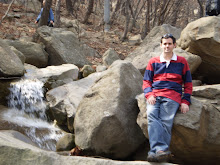
On Tuesday, the Langfang Municipal Intermediate Court (in Hebei province, right outside Beijing) sentenced the deputy Grand Justice of China's supreme court to life in prison. Huang Songyou, the highest-level CCP official ever convicted on corruption charges, admitted to taking $570,000 in bribes from five different lawyers since 2005 in return for favorable rulings. He was also convicted of embezzling $176,000 of government money in 1997, while a lower court judge in Guangdong province. Huang hasn't indicated whether he plans to appeal.
Huang's case is just a highlight in the CCP's anti-corruption drive. The party feels that, to maintain its legitimacy and respect among average Chinese, it has to reverse this unfortunate part of its image. I wonder, though, how successful its attempts can be, especially in the short term. While we in the West are familiar with corrupt politicians, East Asian cultures, and no only China's, tend to view deep-seated graft and nepotism as inevitabl
 e byproducts of any system of power. My experiences lead me to think that citizens of those countries view that kind of behavior as more-or-less acceptable. Against this backdrop, it will be difficult for the CCP to convince the people that this kind of dealing isn't always going on behind the scenes.
e byproducts of any system of power. My experiences lead me to think that citizens of those countries view that kind of behavior as more-or-less acceptable. Against this backdrop, it will be difficult for the CCP to convince the people that this kind of dealing isn't always going on behind the scenes.The government also seized all of Huang's property, kicked him out of the CCP and forbade him from ever serving in government again. As far as I can tell, they took all his property, not only enough to cover what he illegally took.
Huang had been the high court's greatest proponent of constitutional reform and protections. How this conviction, and the anti-corruption campaign in general, will affect the tack of the supreme court toward or away from constitutionalism is something to watch.







No comments:
Post a Comment